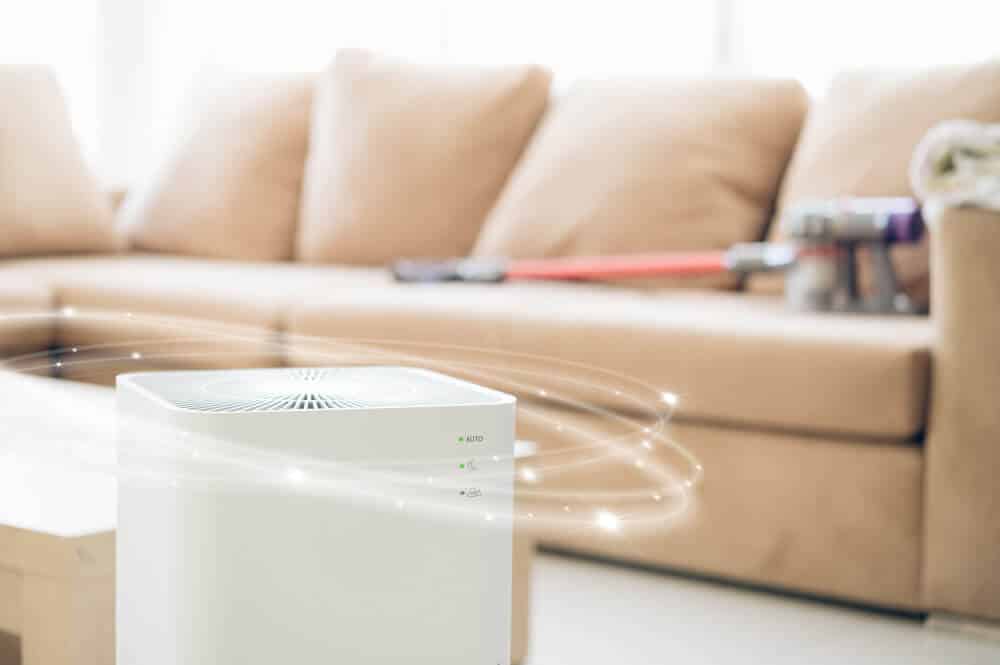Everybody has a different opinion of the ideal humidity. Some of us prefer drier climates, while others thrive in humidity. However, using a humidifier may do more than just make the air feel less dry – it may also offer some health benefits.
Humidifier therapy uses moisture to address the irritation that dry air causes. However, it’s also possible to go too far in the other direction and over-humidify, which can add its own set of health concerns.
So, what are the benefits of a humidifier? Most of them concern preventing dryness, which can result in minor health complications. Spending too much time in a dry environment can irritate certain sensitive tissues, especially your mucous membranes. Restoring humidity levels to normal or slightly above normal can help these tissues recover and restore their normal functionality.
What Are the Benefits of a Humidifier?

1. Healthier Skin
Most people suffer from dry skin in the winter. Not only are most areas dry outside, but furnaces also make your indoor air much drier than normal. Your skin relies on moisture in the air to maintain its protective barrier, so dry air will result in more irritable, red, and itchy skin. Adding a bit of extra humidity can help your skin cope better with dry winters.
2. Soothes Allergies
Allergies usually cause inflammation of mucous membranes in the nose, eyes, and throat. Cool, moist air helps calm inflammation, while relatively high humidity also lowers the incidence of allergens such as spores, dust, and debris. A humidifier won’t make your allergies disappear entirely, but it will help them feel slightly more tolerable.
3. Fewer Nosebleeds
The main cause of nosebleeds is dry skin inside the nose. The capillaries in your mucous membranes are very delicate, and when they dry out, they become prone to breaking. Adding in extra moisture can help blood vessels remain soft and pliable, leading to fewer nosebleeds. Even just running a humidifier at night can help reduce the incidence and severity of nosebleeds caused by dry air.
4. Reduces Aerosol Transmission of Viruses
Many viruses rely on aerosol transmission, which involves spraying tiny droplets that hang in the air until someone else breathes them in. High humidity can dramatically reduce the virus’s ability to stay in the air, making it less infectious and dangerous.
Types of Humidifiers
Humidifiers come in many different shapes and sizes. Finding the right one for you may be challenging, especially if you don’t know where to start your search. Your main considerations should be the area you want to humidify and your budget. Some humidifiers are safer than others, which may play a role in your decision if you have children or pets in the home.
Central Humidifiers
Central humidifiers fit into your home’s existing heating or cooling system. Since they add moisture directly into your HVAC system, they offer full-home coverage. In many cases, central humidifiers also have humidity meters that allow you to set the optimum humidity in your home. Excessively high humidity can cause many other issues, so it’s vital to have a way to control the humidity levels in your home.
The main drawback of central humidifiers is that they’re the priciest option. However, considering the value they can add to your indoor quality, they may be worth the cost.
Evaporators
Evaporators use fans and a damp filter to push moisture into an area. The filter sits above the fans, and when the fans blow, they push some of the moisture out of the filter and into the air. Most evaporators have a very simple design, which makes them affordable and accessible for almost anyone. However, their simplicity also means that you can’t control humidity levels, and they’re limited to humidifying one room at a time.
Impeller Humidifiers
Impeller humidifiers work similarly to evaporators, except they use several rotating disks to fling moisture into the air. Since they don’t use heat, they’re one of the safest options, though they still have many of the same drawbacks as evaporators.
Steam Vaporizers
Steam vaporizers turn water into steam before using a fan to distribute the moisturized air into the room. Steam vaporizers are usually portable and energy-efficient and make a great option for a first humidifier. However, they can cause burns if used incorrectly and will also only work on one room at a time.
Keeping the Ideal Humidity Levels at Home
While low humidity can cause allergies, nosebleeds, and sinus headaches, high humidity is also unhealthy. Extremely high humidity levels encourage the growth of mildew, mold, harmful bacteria, and mites. It can also start to cause water damage where water pools due to condensation. Humidity also affects how well a body can cool down, so high humidity and high temperatures tend to be extremely uncomfortable.
The recommended humidity is usually between 30% and 50%. Central humidifiers often have hygrometers that measure and control air moisture levels, similar to how thermostats control temperature. If you decide on a portable humidifier, consider investing in a small hygrometer to ensure you’re not over-moisturizing your indoor air.
Work with the Professionals
Since your HVAC controls all of the air in your home, it’s a great place to start when improving air quality. A central humidifier is a great way to ensure your home stays in the optimum humidity band for health and wellbeing, but it’s only one of the many ways we can help you improve the air in your home.
Rock Valley HVAC is proud to serve southern Wisconsin and meet all of your HVAC service needs. Our friendly technicians will work to find the optimal solution for your particular needs, from installation and maintenance to repair and replacement.
To find out whether a central humidifier is the right choice for you, give Rock Valley HVAC a call at (608) 496-9988 today!



